| Umělec 2012/1 >> Fuck Mugabe!!! | Просмотр всех номеров | ||||||||||||
|
|||||||||||||
Fuck Mugabe!!!Umělec 2012/120.05.2013 14:32 Spunk Seipel | africa | en cs de |
|||||||||||||
|
"In the best dictatorial tradition, Mugabe lives holed up in his luxurious urban palace in Harare. At night, the street leading past the giant property with the high wall and thick barbed wire is closed to traffic. During the day, people are allowed to drive down this important road and past the heavily guarded house. But woe to those who stop! Or take pictures! More than a few people have ended up dead as a result."
Fuck Mugabe! Fuck his wife! They are goddamn assholes! We can write and print this here. I can let my disdain run wild! I don’t have to be afraid of Mugabe and his corrupt clique. But the people who have to live under his bondage do.
In November and December I was invited by the National Gallery to visit Harare, the capital of Zimbabwe, in order to present an exhibition of my works. At the museum, I planned to show charcoal drawings of “African heroes,” but I also wanted to hang my works in public city spaces. The pictures were to be exposed to wind and weather. Anyone would be able to remove them from the walls and take them home. My aim was to question the market value of art, how art is presented, and how we behave as museum visitors. How do Africans and Europeans differ in their understanding and interpretation of the life and work of Albert Schweitzer, Patrice Lumumba, or Steve Biko? The aim of the exhibition was to explore two fundamentally different views of African history. As my date of departure grew closer, the curators in Harare grew increasingly nervous. In the end, we agreed to their request not to announce the exhibition. Any projects in the public space would be done on my own responsibility, and the National Gallery was not to be mentioned at all in this relation. When I arrived, I quickly understood why the curators in Harare had been so afraid. The prevailing mood in the country is one of fear! We have heard many bad things about this country in recent years. Hyperinflation, the confiscation of white farms and the expulsion of white farmers, hunger, cholera, maltreatment and oppression of opposition politicians, forced evictions and the destruction of shanties housing some 2.4 million people (with a population of ca. 12 million), refugees streaming into the neighboring countries, mass shootings of strikers. The list of atrocities committed by the government of Robert Mugabe is long indeed. Today Mugabe, the former rebel who successfully fought the white racists in a years-long civil war, is himself a racist. And he is powerful. Under the guise of “returning” to the people what the whites and foreigners took from them, he and his clique hoard what they can. The consequences have been catastrophic. Zimbabwe, once the wheat basket of Africa, is now regularly forced to import food. There may be food in the supermarkets, but the quality is poor. And everything is extremely expensive. A can of Coca-Cola costs one US dollar, half a kilo of withered grapes (you won’t find anything better) costs eight US dollars. Since the introduction of the dollar as the official currency, there is no such thing as change. At best, you’ll get some cheap candy as change, which only makes shopping even more expensive. A housemaid earns 50 US dollars on average, teachers often earn less than 200 US dollars a month. From this, they have to feed their children, and often other relatives as well. As bad as the economic situation is, the political situation is even worse. In the best socialist tradition – which Mugabe officially disavowed in 1991 – anyone with divergent political or cultural ideas is suppressed. When former president Canaan Banana took a stance against Mugabe, he was accused of homosexuality – which is not only a great taboo in most African countries, but is also a punishable offense in Zimbabwe. Fearing for his life, Banana fled into exile. When he was still in the opposition, Morgan Tsvangirai was mistreated in prison; many of his friends were murdered. It has become impossible to imagine a governing party other than Mugabe’s Zanu/PF. In the best dictatorial tradition, Mugabe lives holed up in his luxurious urban palace in Harare. At night, the street leading past the giant property with the high wall and thick barbed wire is closed to traffic. During the day, people are allowed to drive down this important road and past the heavily guarded house. But woe to those who stop! Or take pictures! More than a few people have ended up dead as a result. The country is saturated with informers, young men and women who mix in with the population in every town and village in order to check whether anyone is saying or doing anything against Mugabe. I myself was arrested by the Intelligence Police when I was taking pictures of urban life in Mugabe’s hometown of Masvingo and photographed a beggar woman. Two policemen in their early twenties took me to the rundown, stinking, mold-infested police station, where they inspected my camera. I didn’t know that there had been anti-hunger protests in Masvingo several years earlier. What the secret police fails to understand is that such actions cause more damage than a photo of a beggar ever could. Later, I was arrested again in Harare because I was giving away my drawings on the street. I was suspicious just by the fact that I was traveling alone. Other artists have had similar experiences. Dan Halter, who is originally from Harare but now lives in Cape Town, was arrested two years ago for filming a video in the capital. He has been banned from ever again entering his home country. The constant presence of the secret police, censorship, and the ban on discussing social or political issues have affected the entire country. The dominant feeling is one of fear. The result is a culture of ignorance and disinformation. Although Zimbabwe has made an effort to build schools, instruction is almost exclusively in English. Books are rare. In the three bookshops that I found that sold books in Shona or Ndebele, the country’s two main languages, the poorly printed works sit collecting dust. Their main topics are wild animals or the heroic struggle against the whites. Imported books are subject to “punitive tariffs” of up to 100 percent, making them nearly impossible to buy. Television – which not everyone can afford – is not much better. In cultural programs, women in pink jogging outfits perform dances from the war of liberation, while young hip-hoppers sing odes to Mugabe and his wife. Sounds very much like Asian dictators, doesn’t it? All this is bad news for art. Many artists are emigrating, primarily to South Africa, where the art scene has made enormous progress in recent years. Socially critical art is practically de rigueur there. Not so in Zimbabwe: Here, artists of varying talent try to copy the famous stone Shona sculptures. This sculpture art, developed by whites in the 1950s, would appear to offer countless Zimbabweans a chance for social advancement. All over the country, you will find fields filled with stone sculptures of hippos or mother-child figures. However, the explosion of this art form has by no means been accompanied by an increase in quality. The hope that the few tourists will buy these knickknacks is usually in vain. In painting, too, we see little of interest. The scene is dominated by representational art, often with a dash of expressionism. Africa’s wild animals are a popular subject, as are the ever-popular mother with child. Occasionally, local artists romanticize the slum dwellings of the townships or the suffering of the black farmers working their fields with nothing more than a hoe. Some artists interpret their works as political statements. For instance, a man running away from snakes is supposed to represent the common man fleeing from the secret police. Whatever. At the same time, paints and canvas are enormously difficult to get. Many artists drive to neighboring Botswana, Zambia, or Mozambique. Many artists are self-taught. In Harare, an art school attached to the National Gallery is financed with Norwegian funding, although the teachers have little to offer. In Europe, their level of knowledge would correspond to that of a secondary school student. The National Gallery’s library is used only rarely, even by teachers. Curators such as Raphael Chikukwa, who presented a truly excellent pavilion for his country at the most recent Biennale in Venice, are exceptions. He and his colleagues at the National Gallery in Bulawayo are trying their best, but they stand alone in a country in which an asshole like Robert Mugabe clings to power. That is why we should all fuck Mugabe and his wife. So that art can finally develop in this country. So that everyone will finally be able to read a book. So that everyone can express their political opinions. So that the people in Zimbabwe will have a better life. Fuck Mugabe and his money-grubbing, Gucci-obsessed wife, so that Zimbabwe will no longer have to live in fear.
Translated from German by Stephan von Pohl.
20.05.2013 14:32
Рекомендуемые статьи
|
|||||||||||||
|
04.02.2020 10:17
Letošní 50. ročník Art Basel přilákal celkem 93 000 návštěvníků a sběratelů z 80 zemí světa. 290 prémiových galerií představilo umělecká díla od počátku 20. století až po současnost. Hlavní sektor přehlídky, tradičně v prvním patře výstavního prostoru, představil 232 předních galerií z celého světa nabízející umění nejvyšší kvality. Veletrh ukázal vzestupný trend prodeje prostřednictvím galerií jak soukromým sbírkám, tak i institucím. Kromě hlavního veletrhu stály za návštěvu i ty přidružené: Volta, Liste a Photo Basel, k tomu doprovodné programy a výstavy v místních institucích, které kvalitou daleko přesahují hranice města tj. Kunsthalle Basel, Kunstmuseum, Tinguely muzeum nebo Fondation Beyeler.
|







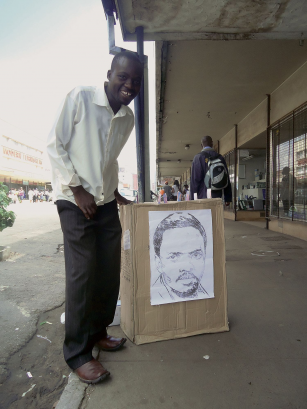
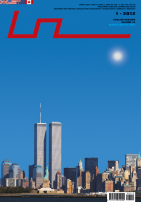


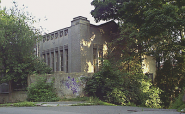
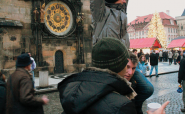
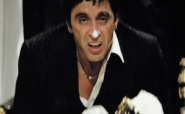
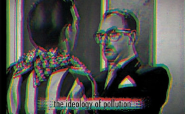












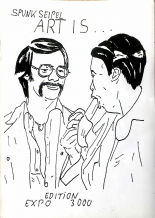
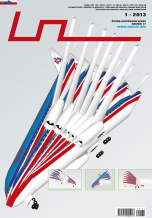
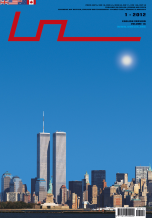
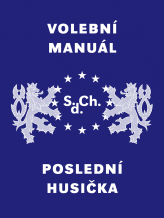


 New book by I.M.Jirous in English at our online bookshop.
New book by I.M.Jirous in English at our online bookshop.
Комментарии
Статья не была прокомментированаДобавить новый комментарий